The Blind Seer and the President: A Prophecy of American Decline?
By Junaid Arif
How a Mystic’s Vision from the Last Century Might Be Unfolding in Today’s Immigration Policies and Economic Upheaval
In the quiet of her Bulgarian home, a blind woman saw what few could imagine: the rise and fall of American power. Now, decades after her death, Baba Vanga’s prediction about a U.S. president who would “destroy” the nation is gaining attention as Donald Trump returns to the White House and implements policies that are reshaping America’s place in the world.
The year was 1996. In a small Bulgarian village, Baba Vanga, the blind mystic some called the “Nostradamus of the Balkans” spoke her final prophecies before passing from this world. Her words reached far beyond her humble surroundings, painting a picture of a future filled with wonder and terror in equal measure.
Among her thousands of visions, one particular American narrative stood out: she reportedly foresaw the election of Barack Obama, the nation’s first Black president, an event that would indeed come to pass years after her death . But her vision of America’s future contained a more ominous note, after this groundbreaking leader, she warned, would come another president who would set the nation on a path toward destruction.
Today, as President Donald Trump returns to power in 2025 and implements sweeping changes to immigration and economic policy, many are wondering: are we witnessing the fulfillment of an old woman’s prophecy?
The Woman Who Saw Tomorrow
Born Vangeliya Pandeva Dimitrova in 1911, Baba Vanga lost her eyesight as a child but developed what followers describe as extraordinary psychic abilities . Over decades, she gained a reputation for predicting events with startling accuracy from the 9/11 attacks to the 2004 Indian Ocean tsunami . Though skeptics question the vague nature of her prophecies and their interpretations after the fact, her track record continues to fascinate believers and critics alike.
Her prediction about Obama demonstrated a peculiar specificity that sets it apart from more general forecasts. “She didn’t just predict any president,” notes one researcher who has studied Vanga’s prophecies. “She specifically foresaw a Black president at a time when this seemed unlikely to many Americans.”
But it’s her subsequent warning about what would follow Obama’s presidency that now sends chills through those familiar with her work: that the next leader would bring about America’s decline.
The Stage is Set
When Donald Trump was first elected in 2016, followers of Vanga’s prophecies took notice. Here was a president unlike any before him—a brash businessman with a nationalist agenda promising to put “America First.” His single term transformed American politics, reshaped international alliances, and left the nation deeply divided.
Now, in 2025, Trump has returned to the White House, and with his comeback has come a wave of policies that are dramatically altering America’s relationship with the world, particularly through changes to the very programs that have long fueled American innovation.
The $100,000 Door
At 12:01 a.m. Eastern Daylight Time on September 21, 2025, a new era began for America’s high-skilled immigration system . With a proclamation signed by President Trump, the cost to bring a new H-1B visa worker to the United States increased by an almost unimaginable amount, a $100,000 fee per application .
The H-1B program has long been a pathway for talented foreign professionals, scientists, engineers, technology experts to work in the United States. For decades, it helped America absorb the world’s best and brightest, fueling innovation from Silicon Valley to academic research labs .
The Trump administration justifies this dramatic fee as necessary protection for American workers. The proclamation states that the H-1B program has been “deliberately exploited to replace, rather than supplement, American workers with lower-paid, lower-skilled labor”. Officials argue that “the large-scale replacement of American workers through systemic abuse of the program has undermined both our economic and national security”.
But the consequences have been immediate and severe for many businesses, particularly small companies and startups that rely on specialized international talent.
Table: H-1B Visa Costs Before and After the Proclamation
| Fee Type | Previous Cost | New Cost (After Sept 21, 2025) |
|---|---|---|
| Basic Filing Fee | $460 | $460 |
| ACWIA Fee | $750-$1,500 | $750-$1,500 |
| Fraud Prevention Fee | $500 | $500 |
| New Visa Integrity Fee | Not applicable | $100,000 |
| Total Estimated Cost | $2,000-$5,000 | $105,000+ |
The Real World Impact
Eva Yao, founder of Flari Tech, a Colorado based technology startup, understands the human cost of these changes all too well. “I do have American candidates,” she explains, “but when I look at post docs and PhD students, so many are foreign students” . As a former H-1B recipient herself, now a citizen, Yao recognizes the critical role international talent plays in cutting-edge fields.
Her company develops breath diagnostics based on quantum sensing for health care applications exactly the type of innovative technology that has kept America at the forefront of scientific advancement. Now, she faces the reality that the $100,000 fee makes it nearly impossible for a small startup like hers to hire the specialized talent she needs.
The situation is equally troubling for universities and research institutions. U.S. colleges and universities secured approval for more than 16,000 new H-1B employees in fiscal year 2025 alone . These international experts teach students, conduct groundbreaking research, and contribute to America’s academic excellence. Under the new rules, each hire would require that staggering $100,000 payment, a cost that many educational institutions simply cannot absorb .
Even within the administration, there appears to be recognition that the policy might need adjustment for certain cases. The proclamation includes a clause allowing the Secretary of Homeland Security to grant exceptions “if the hiring of such aliens to be employed as H-1B specialty occupation workers is in the national interest” . But the criteria for these exemptions remain unclear, creating what critics call a “vague” process with “no clear standards for fee exemptions, opening the door to arbitrary, pay-to-play decisions” .
A Pattern of Economic Disruption
The H-1B fee is just one piece of a broader economic approach that has generated global concern. A comprehensive 29-country survey conducted by Ipsos reveals that 61% of people worldwide believe Trump’s economic policies will negatively affect the global economy . Even more striking, 58% think these policies will harm their own country’s economy .
The same study found that a majority of people in 28 countries believe Trump’s “America First” agenda will damage relations between the U.S. and their nation . In Canada, America’s northern neighbor and closest ally, 81% think the policies will negatively impact the two countries’ relationship .
Meanwhile, economists from the Centre for Economic Policy Research have warned that “the policies of the new administration are likely to weigh negatively on both the US and global economy in the short and long term”. They point to sweeping tariffs that have increased from about 2.3% at the end of the Biden administration to approximately 10% today, “one of the most significant tax increases in more than a generation” .
Table: Global Perception of Trump’s Economic Policies
| Region/Country | Percentage Expecting Negative Impact |
|---|---|
| Global Average (29 countries) | 61% |
| South Korea | 78% |
| Sweden | 76% |
| Canada | 75% |
| United States | 46% |
The economic approach has also raised alarms about America’s fiscal health. In May 2025, Moody’s followed other major rating agencies in downgrading the U.S. sovereign credit rating below AAA . This downgrade reflects concerns about America’s “structural fiscal imbalance and unsustainable debt trajectory” at a time when the administration is pursuing additional tax cuts and spending initiatives.
Resistance and Legal Challenges
The H-1B proclamation now faces significant legal hurdles. Two major lawsuits are challenging the new fee, including one from the U.S. Chamber of Commerce and another from the American Association of University Professors alongside a coalition of labor unions, healthcare providers, schools, and religious organizations .
“The president has said he wants to educate, attract, and retain the world’s best and brightest in the U.S., and the Chamber shares that goal,” said Neil Bradley, executive policy officer at the Chamber. But the $100,000 fee makes this objective nearly impossible to achieve.
The lawsuits argue that the administration overstepped its authority, with the AAUP case describing the fee as “arbitrary and capricious” and “untethered from the cost of adjudicating H-1B petitions” . Previously, H-1B petition processing fees typically amounted to a few thousand dollars, not the six-figure sum now required.
Prophecy or Coincidence?
As these policy battles rage in courts and conference rooms, the mysterious figure of Baba Vanga looms in the background. Her predictions have seen a resurgence of interest on social media and in spiritual circles, with many noting the eerie timing of her prophecies and current events.
For those who believe in Vanga’s visions, the connection is clear: the president she warned about has arrived, and his policies, however well-intentioned, are systematically dismantling the very systems that have maintained American supremacy for generations.
The H-1B restrictions, in this interpretation, aren’t just immigration policy, they’re the mechanism through which America slowly closes its doors to the world’s talent, ultimately undermining the innovation ecosystem that has driven progress for decades.
Brad Bernthal, a professor at Silicon Flatirons Center for Law Technology and Entrepreneurship, voices a concern shared by many in the technology and innovation sectors: “The founders that built Silicon Valley, if you look at it, they were both first and second generation immigrants. They swing for the fences; there’s a grit there. At the end of the day, if we start restricting that talent, that would be a bad thing for innovation” .
A Future Yet Unwritten
Baba Vanga’s prophecies, like all predictions, remain open to interpretation. The administration and supporters of the H-1B changes argue they’re correcting longstanding abuses and protecting American workers from being replaced by lower-cost foreign labor . They see these policies not as destruction but as course correction—a rebalancing of America’s priorities after decades of globalization.
Yet the question remains: will these policies ultimately strengthen America as their proponents believe, or will they, as Baba Vanga supposedly predicted, set the nation on a path of decline by cutting off the flow of global talent that has long fueled American innovation?
Perhaps the most mysterious aspect of this story is that the answer hasn’t yet been written. Prophecies, like policies, unfold in the complex tapestry of human decisions and historical accidents. The true impact of these dramatic changes to America’s immigration system and economic approach may not be known for years, or even decades.
What remains clear is that in the clash between prophecy and policy, between the visions of a blind mystic and the decisions of a powerful president, the future of American innovation and global leadership hangs in the balance.
As Baba Vanga herself might have said: the seeing may be blind, while the blind may see.
Author: Junaid Arif
Date: 18 Oct, 2025
For more updates Visit Newsneck
Frequently Asked Questions (FAQs)
1. Who was Baba Vanga?
Baba Vanga, born Vangeliya Pandeva Dimitrova in 1911, was a blind Bulgarian mystic known as the “Nostradamus of the Balkans.” Many believe she had the ability to predict future events, with followers claiming she accurately foresaw the 9/11 attacks, the 2004 Indian Ocean tsunami, and the rise of Barack Obama.
2. What exactly did Baba Vanga predict about the US President?
She reportedly predicted that after the United States’ first Black president (Barack Obama), another president would come to power who would set the nation on a path toward destruction or decline. This prediction has gained attention with Donald Trump’s presidency and his return to office in 2025.
3. Did Baba Vanga specifically name Donald Trump?
No, Baba Vanga did not mention Donald Trump by name. Her prophecies are typically interpreted from her vague and symbolic visions. The connection is made because Trump was the president who directly followed Barack Obama, and his policies have been controversial and impactful on the global stage.
4. What is the H-1B visa, and why is the new $100,000 fee significant?
The H-1B visa is a program that allows U.S. employers to temporarily employ foreign workers in specialized occupations, often in technology, engineering, and science. The new $100,000 fee makes it extremely expensive for companies, especially startups and universities, to hire international talent. Critics argue this will stifle innovation by cutting off America’s access to the world’s brightest minds.
5. Are there other Trump policies that align with the “destruction” prophecy?
Beyond the H-1B visa changes, economists point to widespread tariffs on imported goods (which act as taxes), a downgrade of the U.S. credit rating due to concerns over debt, and a foreign policy approach that has strained relationships with key allies. A global survey found that a majority of people in many countries believe his policies will harm the world economy.
6. Do all experts believe Baba Vanga’s predictions are real?
No, there is significant skepticism. Many scientists and critics argue that her prophecies are often too vague and open to interpretation. They suggest that people make connections after events have already happened, a phenomenon known as “postdiction.” Her accuracy is a subject of ongoing debate.
7. What is the Trump administration’s reason for the H-1B visa fee?
The administration states that the H-1B program has been abused to replace American workers with cheaper foreign labor. They argue the massive fee is necessary to protect American jobs and national security by discouraging this practice and ensuring the program is used only to supplement the workforce when truly needed.
8. Can the $100,000 H-1B fee be challenged?
Yes. The new fee is already facing major legal challenges from groups including the U.S. Chamber of Commerce and a coalition of universities and labor unions. The lawsuits argue that the administration overstepped its legal authority and that the fee is arbitrary and damaging to the U.S. economy.
9. Is America’s future decline inevitable based on this prophecy?
Not at all. Prophecies are open to interpretation, and the future is shaped by countless decisions and events. The article explores a mysterious prediction, but the actual outcome depends on policy effectiveness, global responses, and the resilience of American institutions. The prophecy serves as a lens to examine current events, not a definitive forecast.


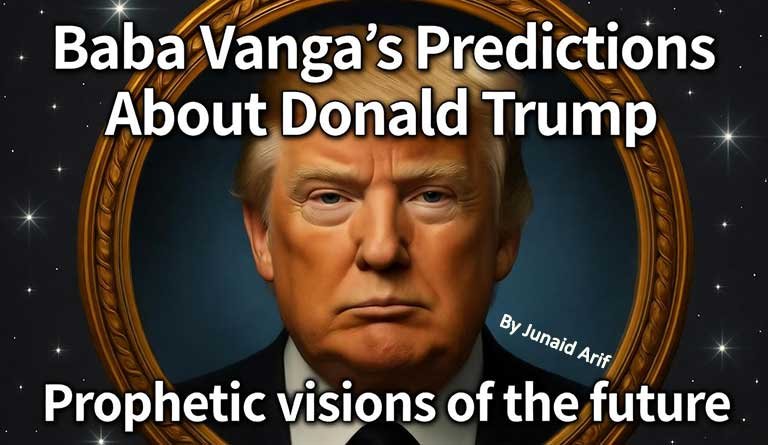


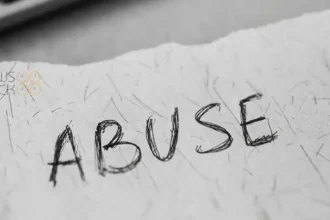
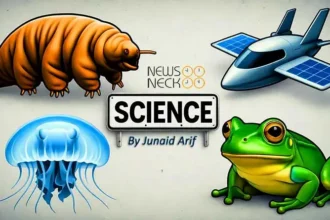


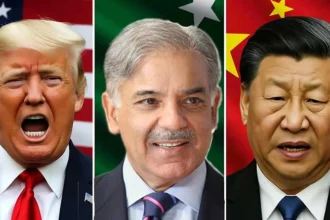
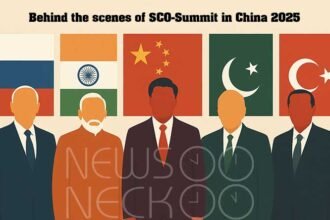
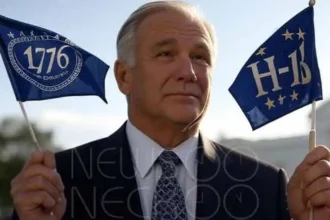

One Comment
Thanks for the good writeup. It if truth be told used to be a leisure account it. Look advanced to more added agreeable from you!